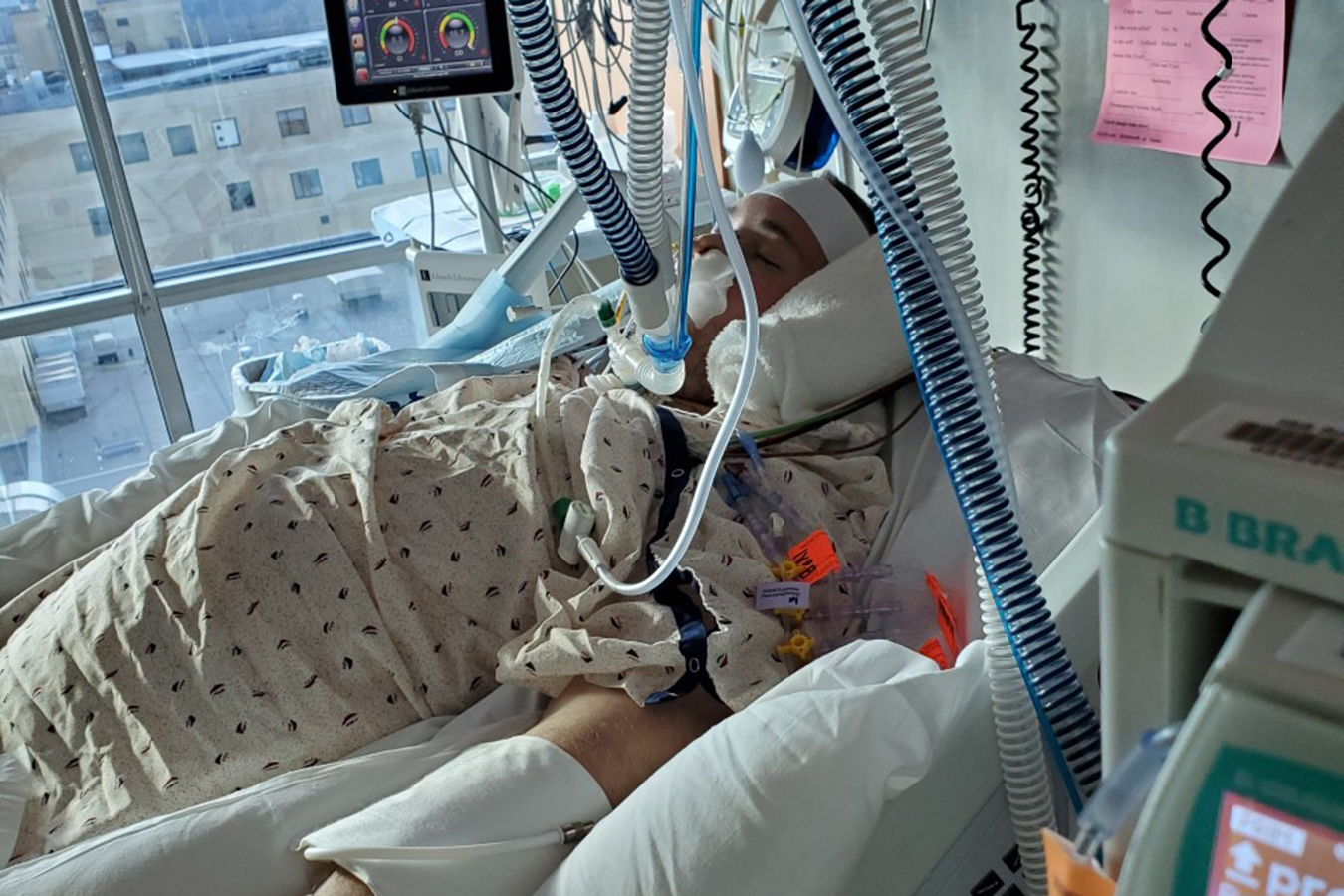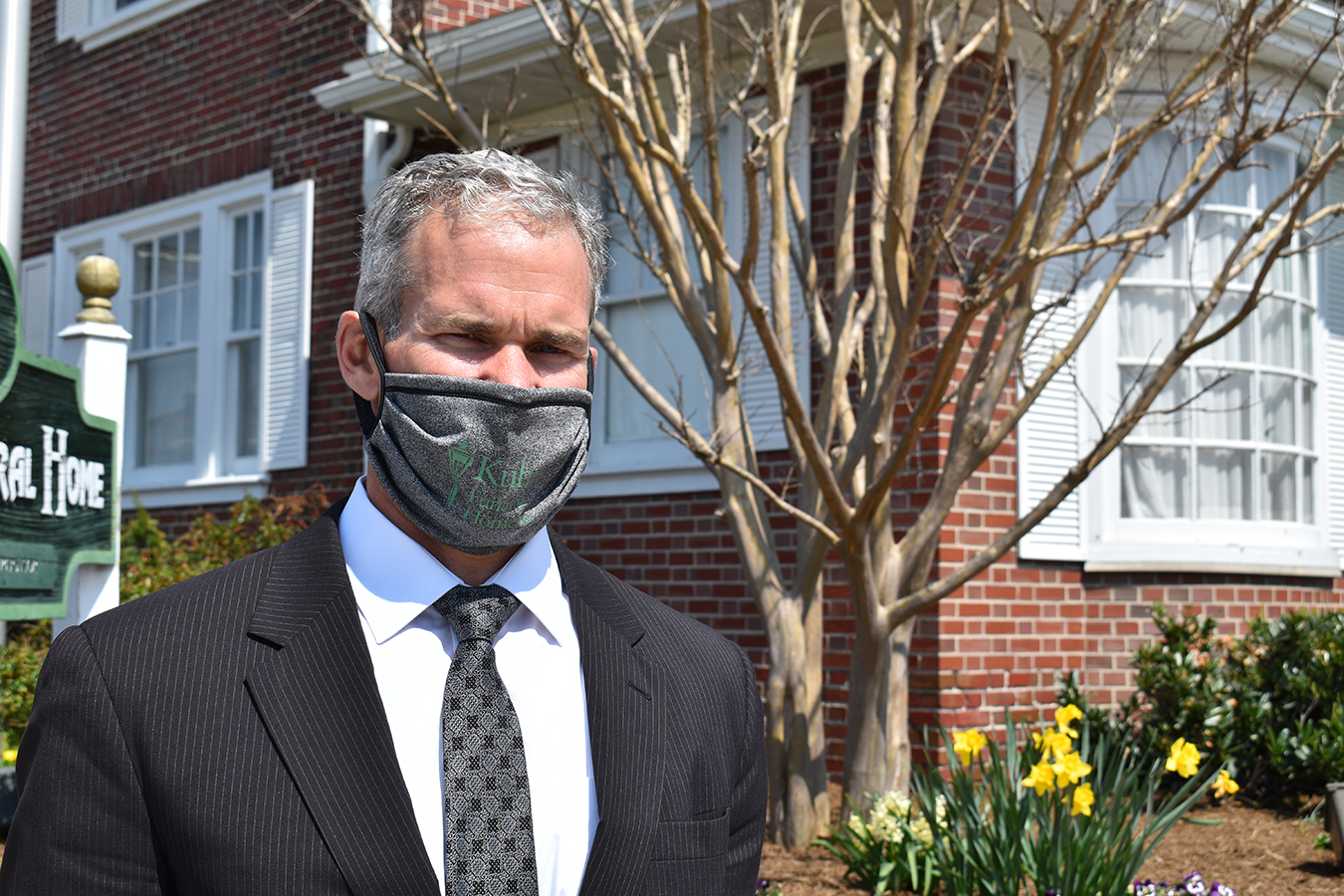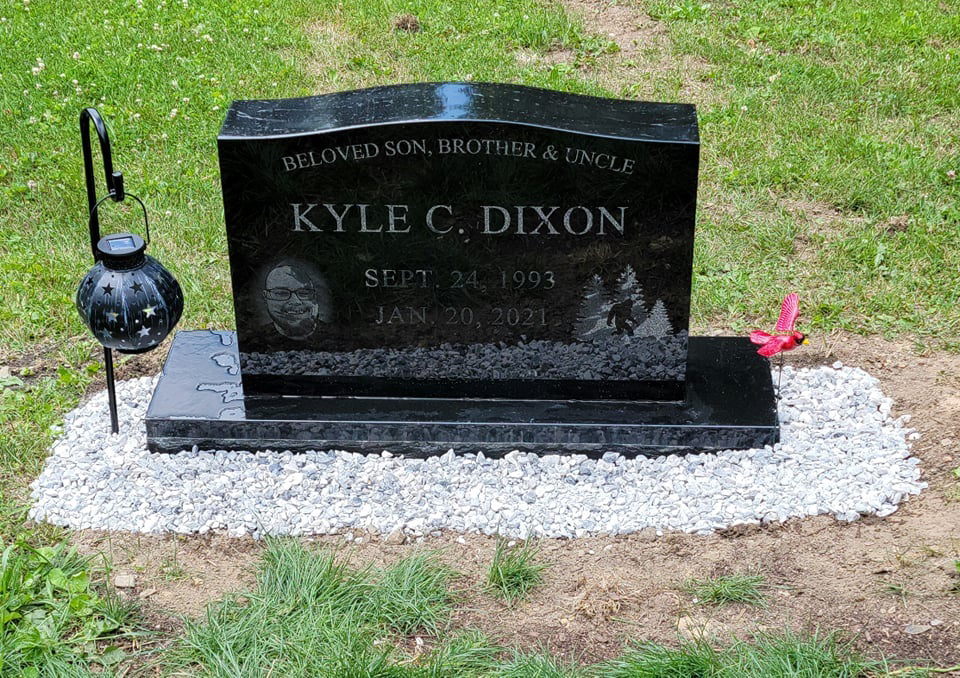Months after Kyle Dixon’s death, his old home in Lanse, Pennsylvania, is filled with reminders of a life cut short.
His tent and trekking boots are on the porch where he last left them. The grass that I used to mow has grown. And on the kitchen counter are still jars of the over-the-counter cough medicine she took to try to ease her symptoms at home when COVID-19 started destroying her lungs.
Dixon he was a guard at a nearby state prison in rural, conservative Clearfield County, Pennsylvania. He died in January from the virus, at the age of 27. Her older sister, Stephanie Rimel, was overwhelmed by excitement as she walked through Dixon’s house and remembered him.
“I’ll never be able to be at her wedding,” said Rimel. “I will never see him grow old.”
However, their expressions of pain quickly turned to anger. Mascara recalled the misinformation that proliferated last year: masks don’t work. The virus is a Democratic trick to win the election. Only the elderly or those who are already ill are at risk.
Rimel said his brother believed some of that. He heard it from other prison guards, from family and friends on Facebook, he said, and from the former president, for whom he voted twice.
The falsehoods and conspiracies have fostered an attitude of Disdain for the coronavirus among many people in rural Pennsylvania, where she and her siblings grew up, Rimel said. And, due to misinformation, his brother did not always wear a mask or practice physical distancing.
When family members expressed their derogatory opinions about covid, Mascara’s pain became even stronger and more personal. Rimel recalled a particularly difficult time right after his brother had to be hospitalized. Even then, relatives repeated conspiracy theories on social media and bragged about not wearing masks, he said.
Some of the people who attended Dixon’s funeral still share misinformation about covid online said another sister, Jennifer Dixon.

(Stephanie Mascara)
“I wish they had been there his last days and had seen him suffer,” he said. “Observe how his heart could still beat. Your kidneys producing urine because Very strong. Your liver working. Everything. It was his lungs that were gone. Your lungs. And that was only due to covid. ”
Both sisters wanted the obituary of their brother was not ambiguous about what had killed him. She says: “Kyle had much more life to live and COVID-19 held back his bright future.”
While these sisters have chosen to be frank about what happened, other families have decided to save silence on deaths from covid, according to Mike Kuhn, director of a chain of funeral homes in Reading, Pennsylvania.
Kuhn’s business did not handle Kyle Dixon’s funeral, but at his three funeral homes he has helped bury hundreds of people who died from the coronavirus. He said that about half of those families asked that covid not be mentioned in obituaries or death notices.
to die, probably in the next year or two anyway, and they were in a nursing home, and then they got sick with covid, and you know, I really don’t want to give covid much credit, ‘”Kuhn said.

Some families wanted their loved one’s official death certificate changed so that covid would not be listed as the cause of death, Kuhn added. Death certificates are official state documents, so Kuhn couldn’t make that change. But the request shows how much some people want to minimize the role of the coronavirus in the death of a family member.
Refusing to face the truth about what killed a family member or community can do make the duel much more difficult, said Ken Doka , who works as an end-of-life care expert for the Hospice Foundation of America and has written books on aging, end-of-life care, death, and grief.
Doka said that when a person dies from something controversial, it is called a “death by deprivation of rights.” The term refers to a death that people are not comfortable talking about openly due to social norms.
Doka first explored the concept in the 1980s, along with a another related one: “duel deprived of rights”. This occurs when mourners feel they do not have the right to express their loss openly or fully due to cultural stigma about how the person died.
For example, deaths from drug overdoses or Suicides are often viewed as the result of alleged “moral” failure, and mourners often fear that others will judge them for the deceased person’s choices and behaviors, Doka said.
” In fact, if I say that my brother died of lung cancer, what is the first question to ask? Was he a smoker? ”Said Doka. “And somehow, if you were a smoker, you are responsible.”

Doka predicts that Americans who have lost their loved ones because of covid in communities where the disease is not taken seriously can also find similar actions, transfer responsibility for the virus to the person who died.
Dixon’s sisters said that This is the attitude they often perceive in people’s responses to the news of their brother’s death: asking if he had pre-existing conditions, or was he overweight, as if he were to blame.
Those who criticize or reject the victims of the pandemic are unlikely to change their minds easily, said Holly Prigerson , a sociologist specialized in grief. He added that the critical comments come from a psychological concept known as cognitive dissonance.
If people believe that the pandemic is a hoax, or that the dangers of the virus are exaggerated, then “any things, including the death of a loved one from this disease, compartmentalize it, ”Prigerson explained. “They are not going to process it. It gives them too much of a headache to try to reconcile. ”
Prigerson cautions that people whose families or friends are unwilling to acknowledge the reality of COVID may have to set new boundaries for those relationships.
As Rimel continues to mourn the death of her brother, she has found relief by joining grief support groups with other people who agree with the information about covid. In August, she and her mother attended a march in remembrance of Covid victims in downtown Pittsburgh, organized by the group
And in June, a tombstone was placed over Dixon’s grave.
Near the bottom is a strong message for the public and posterity: F— COVID-19.
Long after they are gone, the family wants the truth to endure.
“We want to make sure people know about Kyle’s story and that he passed away from the virus,” said Rimel.
This story is part of an alliance that includes NPR, WITF and KHN.
Note: This article has been indexed to our site. We do not claim legitimacy, ownership or copyright of any of the content above. To see the article at original source Click Here













